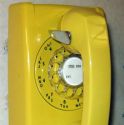|
I am looking to get funding for documentary film purposes and was curious about the process of grant writing. I am aware that grant writing is a bit of an art and was curious if anyone could recommend a good starting place. Any advise? Is there a good book that explains the standard process? Or Internet source that anyone could recommend? Thanks in advance.
|
|
|
|

|
| # ? Apr 25, 2024 08:07 |
|
I write several grants per year for my job. I had no experience or instruction in grant writing prior to starting other than having an English degree, so I had to fumble along and learn as I went. Knowing your material or your project very well is crucial, so that you can explain your needs and the goals and outcomes you expect to accomplish. Be able to show your needs in a concrete fashion (having data, not just some vague ideas) and also to show that your project is feasible with the resources you have/are asking for. Read all the directions, know exactly how the funder wants things formatted and submitted, and answer every question. Tell a good story so the funder is engaged and wants to give you money. Know who will be reading your proposal and scoring it and write to that audience. Grant writing isn't really that difficult, but looking at an RFA full of questions can be a bit overwhelming so I find it helpful to break it down and just work on a piece at a time. Don't try to do it all alone if you can help it -- if you're working with a committee give them some jobs so that you can focus on getting everything on paper.
|
|
|
|
Everything Burrito posted:I write several grants per year for my job. I had no experience or instruction in grant writing prior to starting other than having an English degree, so I had to fumble along and learn as I went. Thanks. The whole process is a new thing for me, so this is helpful.
|
|
|
|
Before you start writing, do your research. Grant writing is different from many other kinds of writing in that you know exactly who your audience is. Find out as much about your potential funder as possible before you put a word on the page. Read all instructions for submissions twice. Each foundation/funder has different rules and expectations. Be specific about what the outcomes will be. They should be inspiring, specific, achievable and measurable. A good case for support will show the funder how the world will be different/better at the end of the grant period. Never tie outcomes to things out of your control. Make a case that you have special skills or access that give you a unique benefit that will enable you to accomplish the outcomes better than some other person or company. Fire away if you have questions. I am a cog in a fundraising machine.
|
|
|
|
Any grant writing I have ever done has involved two main ingredients: 1. Reading and following the institution's instructions, which may involve concise presentation of data 2. Writing a request that is engaging and supportive of the institution's requirements But the first thing to take care of is matching your ask with the appropriate organization. A guide (geared toward Canadian grant writing) is here: http://www2.gov.bc.ca/local/myhr/documents/pay_reimbursements/PECSF/Grant_Writing_Handbook.pdf
|
|
|
|
Thanks for all the feedback! It has been very helpful in creating a realistic time frame in the preparation process of applying for grants. Since it's a bit premature for my intentions to actually apply for a grant, I'm sure I will have more questions when I'm actually in the thick of it.
|
|
|
|
slothzilla posted:Before you start writing, do your research. Grant writing is different from many other kinds of writing in that you know exactly who your audience is. Find out as much about your potential funder as possible before you put a word on the page. This is all great advice. Writing for your audience is especially important. Define your goals clearly and highlight any resources/abilities/materials that you already have (i.e. the grant doesn't have to pay for them) that will help meet you goals.
|
|
|
|
Going to echo what everyone else has said here . . . I currently direct a large-scale federal educational outreach grant at a university (on a 5-year cycle) plus write several supplementary grants for my program each year. Instead of repeating their good advice, I'll offer a few pitfalls to make sure to look out for: 1. Cost-matching: Many sources will require you to cost match (up to 100%). MAKE SURE you can promise to match funds. Don't just assume you will be able to find enough volunteers; do some cursory research and ensure you have adequate support before you commit to this. 2. Indirect costs: Not sure how this works for grants in your area of interest as my experience is only in a university setting, but read this fine print VERY carefully. You may have to factor in indirect costs, even if you're not with an institution, so the grant source can replenish their source of funds. These can be anywhere from 8% (pretty rare, but this is the cost my program operates under) to 80% (which is what a huge, federal research grant might expect to recover). 3. Get someone to help you manage salary if you are including that in your grant; unless you are a Human Resources professional, this can get you into hot water REALLY quickly on grant funds. Audits are no joke. 4. KEEP EXCELLENT RECORDS. I cannot stress this enough! Keep your receipts, scan them and save them somewhere secure, get all of your consent paperwork in order (if using human subjects -- again, not sure how a documentary would work, but I assume there's some amount of media release paperwork involved). And finally, a piece of proactive advice: attend a grant-writing workshop if feasible. It's also often worth contacting others in the field to see if they offer some kind of consulting to review your grant. I assume your field is highly competitive; outside input from someone with a successful track record is worth it even if you think you absolutely nailed your proposal.
|
|
|
|
Just gonna say, at least in the US government grants and foundation grants are pretty much separate fields. Foundations want to know how you're helping their mission or what you're doing. Government grants are different.
|
|
|
|
On the topic of workshops, be aware of who is sponsoring them. Before I knew better, I went to a couple that were put on by companies wanting to teach you how to use a particular grant to buy their product. It was a complete waste of time.
|
|
|
|
There is a good likelihood that your proposal will be read very quickly by someone who has already read a lot of proposals. They may be using a scoring rubric where they are expected to choose a number and support it with a short rationale. Make it extremely easy for them to grab that rationale from your proposal and your scores will be better than if they had to dig for it. "This proposal is innovative because..." "This program requires minimal resources in the form of..." "At the conclusion of this project, we will have achieved the following outcomes..."
|
|
|
|

|
| # ? Apr 25, 2024 08:07 |
|
claptrap posted:And finally, a piece of proactive advice: attend a grant-writing workshop if feasible. It's also often worth contacting others in the field to see if they offer some kind of consulting to review your grant. I assume your field is highly competitive; outside input from someone with a successful track record is worth it even if you think you absolutely nailed your proposal.
|
|
|











